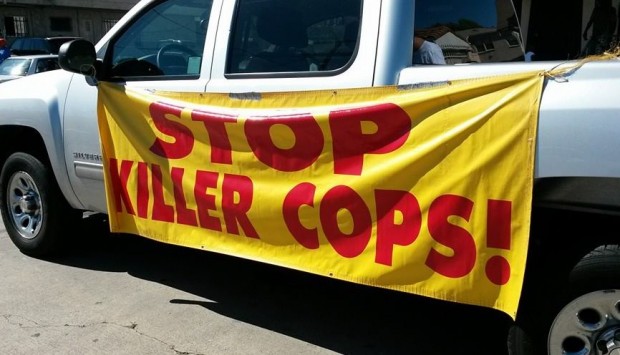 Although it is only a matter of time before same-sex marriage bans are pretty much done across the country, there are still going to be those conservatives out there holding on for dear life to the one bigoted and discriminatory thing they can keep on the law books and defend openly. So don’t get too upset over California’s Proposition 8 being upheld by the State Supreme Court. The fact that they also upheld the marriages performed before the ban says that even they know this law is going to be history soon. Columnist Maggie Gallagher, the head of the anti-gay group that spearheaded the pro-Prop. 8 campaigns and in 2005 testified before congress in defense of “traditional marriage” and forgot to let tell folks that she got a $20,000 grant from the Bush administration in 2002 and 2003 to do so, is going to pat herself on the back for this win, but it will be short-lived. Next year she and her band of idiots, including Miss Califonia 2009 Carrie Prejan whom Gallagher recruited into this stupidity, might be on the losing end when a fight to strike down Prop. 8 might be before voters. As other states as unexpected as Iowa are squashing that nonsense, you know full well that California is just a fluke and will correct itself. Let the games begin!
Although it is only a matter of time before same-sex marriage bans are pretty much done across the country, there are still going to be those conservatives out there holding on for dear life to the one bigoted and discriminatory thing they can keep on the law books and defend openly. So don’t get too upset over California’s Proposition 8 being upheld by the State Supreme Court. The fact that they also upheld the marriages performed before the ban says that even they know this law is going to be history soon. Columnist Maggie Gallagher, the head of the anti-gay group that spearheaded the pro-Prop. 8 campaigns and in 2005 testified before congress in defense of “traditional marriage” and forgot to let tell folks that she got a $20,000 grant from the Bush administration in 2002 and 2003 to do so, is going to pat herself on the back for this win, but it will be short-lived. Next year she and her band of idiots, including Miss Califonia 2009 Carrie Prejan whom Gallagher recruited into this stupidity, might be on the losing end when a fight to strike down Prop. 8 might be before voters. As other states as unexpected as Iowa are squashing that nonsense, you know full well that California is just a fluke and will correct itself. Let the games begin!
LA Times
Reporting from San Francisco — The California Supreme Court today upheld Proposition 8’s ban on same-sex marriage but also ruled that gay couples who wed before the election will continue to be married under state law.
The decision virtually ensures another fight at the ballot box over marriage rights for gays. Gay rights activists say they may ask voters to repeal the marriage ban as early as next year, and opponents have pledged to fight any such effort. Proposition 8 passed with 52% of the vote.
Although the court split 6-1 on the constitutionality of Proposition 8, the justices were unanimous in deciding to keep intact the marriages of as many as 18,000 gay couples who exchanged vows before the election. The marriages began last June, after a 4-3 state high court ruling striking down the marriage ban last May.
In an opinion written by Chief Justice Ronald M. George, the state high court ruled today that the November initiative was not an illegal constitutional revision, as gay rights lawyers contended, nor unconstitutional because it took away an inalienable right, as Atty. Gen. Jerry Brown argued.
Only Justice Carlos R. Moreno, the court’s sole Democrat, wanted Proposition 8 struck down as an illegal constitutional revision.
Justice Joyce L. Kennard, who voted with the majority last year to give gays marriage rights, joined George and the court’s four other justices in voting to uphold Proposition 8.
The case for overturning the initiative was widely viewed as a long shot. Gay rights lawyers had no solid legal precedent on their side, and some of the court’s earlier holdings on constitutional revisions mildly undercut their arguments.
But gay marriage advocates captured a wide array of support in the case, with civil rights groups, legal scholars and even some churches urging the court to overturn the measure. Supporters of the measure included many churches and religious organizations.
The legal fight over same-sex marriage in California began in San Francisco in 2004, when Mayor Gavin Newsom spurned state law, and the city began issuing marriage licenses to gay couples. Long lines of couples showed up to marry and celebrated within view of the court with rice and champagne.
Those marriages sparked a national debate about gay rights and made the marriage question a political issue in an election year. Dozens of states later adopted constitutional amendments to bar same-sex marriage.
Those gay couples who wed in San Francisco later had their marriages rescinded by the California Supreme Court, which ruled that a city could not single-handedly flout state law. But the court said supporters of marriage rights could challenge the ban in the lower courts.
The legal fight moved to San Francisco Superior Court, where a judge struck down the marriage ban as unconstitutional. A Court of Appeal in San Francisco later overturned that decision on a 2-1 vote. The state high court eventually took up the case, which culminated in a May 15 ruling last year declaring gays could marry each other.
Before last fall, California was one of only two states — the other was Massachusetts — to permit same-sex marriage.
Iowa, Connecticut, Vermont and Maine have since legalized it, and lawmakers in New York, New Jersey and New Hampshire are considering bills of their own.
California’s historic 2008 ruling, written by George, repeatedly invoked the words “respect and dignity” and framed the marriage question as one that deeply affected not just couples but also their children. California has more than 100,000 households headed by gay couples, about a quarter with children, according to 2000 census data.
As soon as the ruling was final, thousands of gay couples showed up at city halls around the state to marry, and many flew in from elsewhere for California weddings. While the wedding business was brisk, opponents mounted a heated campaign with the help of churches and conservatives to overturn the court’s action.
Even with the court upholding Proposition 8, a key portion of the court’s May 15, 2008, decision remains intact. Sexual orientation will continue to receive the strongest constitutional protection possible when California courts consider cases of alleged discrimination. The California Supreme Court is the only state high court in the nation to have elevated sexual orientation to the status of race and gender in weighing discrimination claims.


More Stories
PRO-COLONIALISM SELLOUT RESIGNS AS HEAD OF COLLEGE AFTER EXTRAMARITAL CONTROVERSY
JESSE LEE PETERSON SAYS SOMETHING STUPID AGAIN: BELIVES WOMEN SHOULDN'T HAVE THE RIGHT TO VOTE
IS IT TIME FOR RUSH LIMBAUGH TO STOP USING THE PRETENDERS SONG AS HIS THEME MUSIC?